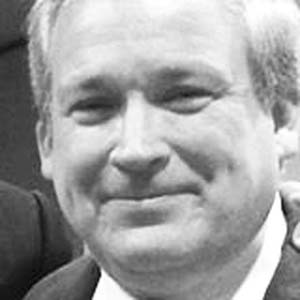WATERS: Beware of the virus of mistrust
Published 10:52 am Tuesday, May 12, 2020

- Jim Waters is president and CEO of the Bluegrass Institute for Public Policy Solutions, Kentucky’s free-market think tank. Read previous columns at www.bipps.org. He can be reached at jwaters@freedomkentucky.com and @bipps on Twitter.
|
Getting your Trinity Audio player ready...
|
Gov. Andy Beshear missed a golden opportunity to demonstrate that he’s personally walking the COVID-19 walk as well as talking the talk concerning the need for Kentuckians to hunker down at home and the commonwealth to shut down its economy with the exception of what he deems “essential” services.
Instead of responding immediately to an open-records request by the Bluegrass Institute related to determining whether the staff at Beshear’s own home abides by the same suffocating COVID-19 protocols he’s demanding from his fellow Kentuckians, the administration took 12 days to finally provide the information.
Not only did the delayed response violate Kentucky’s open records and meetings laws, which, during normal times, require public officials respond within three days — a deadline the General Assembly extended to 10 days this year because of the pandemic — but the information, once received, reveals the governor’s mansion isn’t exactly the shining example of abiding by the same rules Beshear insists everyone else follow.
Mansion records show the Beshear family is being served by several employees in the facility, including housekeepers, chefs, maintenance workers and even a butler.
The administration’s delayed response shows it wasn’t just a simple oversight, which would be understandable considering the current environment, but rather an attempt to spin what suffering business owners and out-of-work Kentuckians view as inconsistent, and which erodes the governor’s message about the true seriousness of this virus as well as overall trust in government.
Beshear is portraying this pandemic as a possible life-and-death matter for some Kentuckians.
Why, then, are nonessential workers still showing up at the mansion — especially since those workers’ primary duty is scheduling and conducting events there.
When Beshear was asked about the matter at his daily press briefing, he claimed mansion employees worked from home when they could.
Yet, while it’s possible to see how a skeleton staff — perhaps the executive director — may be needed to work on future mansion events, how do housekeepers, chefs and butlers work from their own home?
Even with perhaps being able to conduct some business from home, why, as the delayed response shows, were there mansion staff employees whose timesheets indicate more than 40 hours overtime between March 10 and April 10, during the height of this pandemic?
And at the very least, why would more than one housekeeper or chef be needed to serve the first family with their grand total of four persons while their fellow citizens are unable to work at jobs they consider “essential” even if the governor doesn’t?
It’s inspiring that Beshear — like many Kentuckians — during the early days of this pandemic committed to ordering out several times weekly to help local restaurants hurt by his executive orders.
Nonetheless, assuming the governor continues to order out for his family, how much work actually remains for a chef — much less two full-time chefs — to do at the mansion since there are no outside events and several meals are being picked up or delivered?
The response to the open-records request also reveals that, incredulously, some mansion employees continued showing up even after recently being in contact with fellow workers who took COVID-19 emergency sick leave, which is set aside for personnel who contract, or display symptoms of having contracted, the coronavirus or associated with infected individuals.
The worst part of such inconsistencies is that if elected officials cry “wolf’ unnecessarily during this pandemic — something suggested by their own refusal to make workers at the governor’s mansion self-quarantine while forcing other Kentuckians to do so under threat of intimidation and even arrest — then when there truly is a need to hunker down, we could end up dealing with a virus of mistrust which ultimately yields the kind of devastation that makes COVID-19’s damage look like the common cold.
Jim Waters is president and CEO of the Bluegrass Institute for Public Policy Solutions, Kentucky’s free-market think tank. Read previous columns at www.bipps.org. He can be reached at jwaters@freedomkentucky.com and @bipps on Twitter.





